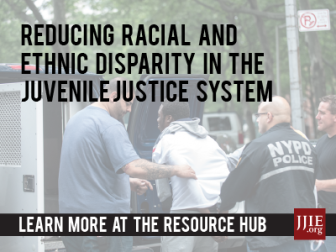 ATLANTA — For a race oppressed for hundreds of years by the government and by law enforcement, are a couple of recent failures to indict really a surprise?
ATLANTA — For a race oppressed for hundreds of years by the government and by law enforcement, are a couple of recent failures to indict really a surprise?
The nation’s criminal justice system cannot fail black people because it was not designed to protect us. Instead, it was meant to keep us deprived of the rights we never had.
The scariest part about being black in the United States is knowing that your freedom or life can be taken away by police any day, for essentially nothing, and usually nothing will be done about it.
If you didn’t know what I meant by that before, you surely know what I mean by it now that a Missouri grand jury failed to indict a policeman for killing Michael Brown and a New York grand jury failed to indict a police officer for killing Eric Garner.
 If you are thinking “this couldn’t possibly happen to me,” you are wrong. It can, especially if you are black.
If you are thinking “this couldn’t possibly happen to me,” you are wrong. It can, especially if you are black.
So yes, it is racial to the core. But it is also about a law enforcement system that seems to have a built-in disrespect for so many it is supposed to protect.
Not everyone can see it, of course.
Back home in Los Angeles I have a black friend who aspires to be a police officer. He can’t understand why I and so many others have such a distrust of the police. And that’s because he has never personally gotten into trouble with the law. I also have white friends who are Hollywood producers and entertainment lawyers who understand and empathize with these challenges, but they can’t completely feel what we feel simply because they have never been subjected to police brutality, and just plain inhumane treatment by law enforcement.
You see, I grew up in South Central Los Angeles in a poverty-stricken and gang-ridden neighborhood known as The Jungles. This is where I witnessed and experienced police harassment, brutality and corruption. When I was 18, I was locked up for a robbery I did not commit and faced a potential life sentence.
After two years my charges of four armed robberies, two gang injunctions and attempted murder were finally dropped in adult court. Since my release in 2010, I have transitioned from the streets into living a positive lifestyle.
Four years later, today, I am a full-time student at the Rev. Martin Luther King Jr.’s alma mater, Morehouse College, the number one black college in the nation.
I’m in a good place at Morehouse and in a good place all around. I respect myself, and others, and I’m primed to go out into the world and do good work.
But that’s not the way law enforcement sees me. They don’t see me as one of the bright lights in the nation’s future. No, I’m a dangerous young black man to them, I’m just a hair away from becoming another Michael Brown or an Eric Garner.
Want to know why I say that?
Here’s my most recent reason:
A few weeks age a couple of friends and I went over to an 18-and-over party near Georgia State University, the big urban campus downtown, not far from Morehouse, for their homecoming. Some security guards were working the door so I slipped a 22-year-old friend of mine my ID. (He had forgotten his, still I shouldn’t have done it.) When one of the security guards caught me, I immediately apologized and politely asked for my ID back.
In short, this whole thing escalated. The female security guard started yelling at me, and told me to talk to the sheriff’s deputy in the parking lot if I wanted to retrieve my ID. I walked up to the deputy on duty and asked if he could help. He responded that he had nothing to do with it. I found this odd because I thought it was his job to handle situations like this.
So I walked back to the first two security guards and asked for my ID again. This led to more screaming by the female guard, which brought in about four more security guards who got in my face. The next thing I knew, I was being choked and dragged through the parking lot by those security guards while the deputy and his partner watched and did nothing.
Even then — months after he had died, but way before many knew about him — I thought about how Eric Garner felt when he was being choked to death by the NYPD. I did not know if I was going to die from a choke hold or a gunshot. All I remember is seeing black and not being able to breathe. After I regained my consciousness and balance, a security guard handed me my ID and the sheriffs, batons in hand, demanded that I leave the property.
After all that, I got my ID back. So much could have been avoided with a little mutual respect.
So it was respect, not race, that was the problem during this incident, because all the security and deputies were black. What baffled me was their absence of regard for another person’s rights and life, not to mention common sense.
They did not respect me as a college student nor did they respect their own authority to correctly handle the situation.
These are the things that can demoralize people, affecting their character and well-being for the rest of their lives. If nothing changes and officers are not held accountable for their actions, then we are all guilty of immorality. All forms of authority and law enforcement must be held to a higher legal and moral standard in our system, a system that says there shall be liberty and justice for all.
Alton Pitre is a 23-year-old native of Los Angeles. Overcoming the streets and incarceration as a youth, he now serves as an ambassador for juvenile justice. Pitre currently is studying sociology at Morehouse College in Atlanta.
Great article! Thanks for writing it and being a voice for many others.